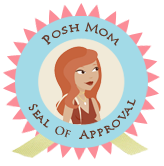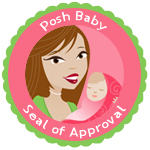
I actually breastfed my first daughter for the first 6 weeks because at that time, I did not work in an environment conducive to pumping, therefore did not continue after going back to work. I tried very hard to breastfeed my second daughter, but after getting extremely engorged causing me pain and my daughter not to be able to latch on properly, I unfortunately had to stop after just 2 weeks. We also found out that she was allergic to cow's milk meaning that if I ate any dairy products it caused her a lot of pain in her tummy; she also had acid reflux and colic to top it all off. Her pediatrician put her on Nutramigen formula and that worked great for her.
So read the article and let me know what you think.
Three Pieces of Breastfeeding Advice to Ignore
Written by Carrie Lauth
This is possibly the most damaging piece of breastfeeding advice you’ll ever hear. Not only can following this advice lead to clogged milk ducts and breast infection, it can sabotage your entire breastfeeding relationship.
In short, don’t do it.
"Don’t breastfeed your baby like a bottle-feeder. Scheduled feedings apply to formula fed babies, not nurslings. Unlike formula, breastmilk is quickly digested and since babies have small stomachs, expect your little one to “cluster feed” through most of the day—and night—in the early weeks. It’s normal for newborns to appear hungry every hour or so for part of the day.
According to the American Academy of Pediatrics, newborns should be nursed whenever they exhibit hunger cues: rooting, putting hands to mouth, mouthing, fussing, or crying, which is actually a late sign of hunger. Listen to them.
Unlike formula, breastmilk works on the law of supply-and-demand. The more baby nurses, the more milk you’ll make and vice versa. Babies on scheduled feedings may not nurse enough to build up an adequate milk supply.
And as for the line about babies becoming dependent? Babies are supposed to be dependent on you. After all, there isn’t much a baby can do for himself. So throw those schedules in the diaper pail.
“Whatever you do, don’t let baby sleep in your bed.”
While co-sleeping may not be the answer for all families, it can make nighttime breastfeeding (and sleeping) less of an ordeal for parents and babies. Most families throughout the world sleep next to their babies. The US is one of a few countries where this act is considered taboo. But why?
According to the Mother-Baby Behavioral Sleep Laboratory at the University of Notre Dame, babies and mothers who co-sleep receive more sleep than those who sleep separately.
But what about long-term negative effects of co-sleeping? Research shows there aren’t any. While some parents seem to have an irrational fear of “over-lying”, this simply isn’t an issue unless a parent is under the influence of mind altering substances - in which case, they shouldn’t be caring for a baby anyway.
Actually, babies who co-sleep tend to have something in common—they’re thriving—both physically, mentally and intellectually. And they’re nursing well. Babies who co-sleep tend to eat more at night, maintaining mom’s milk supply and promoting natural child-spacing.
Co-sleeping makes nighttime nursing much easier and is safe, provided you take some safety precautions and are nonsmokers. If baby wakes during the night, all you have to do is roll on your side and let the nursing begin. Then you can continue getting your snooze on while baby nurses back to sleep.
Ignore those people who say you might roll on your baby (highly unlikely if you’re sober) or are being a sap. People talk like sleeping next to your baby is a slippery slope—do it once and you’ll never have a child-free bed until the teenage years roll around. But this isn’t necessarily true. As with everything, do what works in your family’s situation.
“Babies shouldn’t breastfeed beyond [six months, one year, etc]. Mothers who nurse their toddlers are doing it more for themselves than for their babies.”
There is nothing wrong with breastfeeding toddlers. The American Academy of Pediatrics (AAP) claim there’s no evidence of psychological or developmental harm in babies who breastfeed beyond age one.
In addition, extended nursing has many benefits. Research shows that babies over a year old still receive substantial amounts of nutrients from breastmilk. Even though toddlers need nutrition from solid foods, breastmilk is still a valuable part of their diet, providing high amounts of vitamin B12, vitamin A, folate, vitamin C and protein. The composition of milk even changes to fit baby’s growing needs.
Even though the sight of nursing toddlers isn’t at the forefront of society, extended breastfeeding isn’t extreme. The AAP recommends breastfeeding for at least a year and longer as mutually desired by mama and child and the World Health Organization urges moms to nurse for at least two years.
Find out more myths and truths about breastfeeding as well as cute nursing wear - because motherhood is too short to wear an ugly nursing bra!


























No comments:
Post a Comment